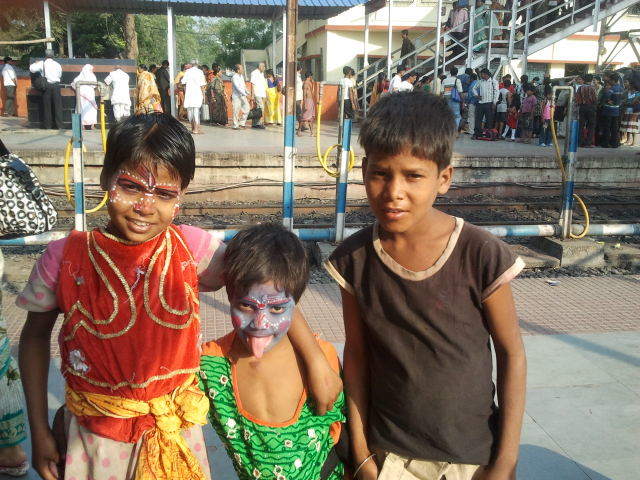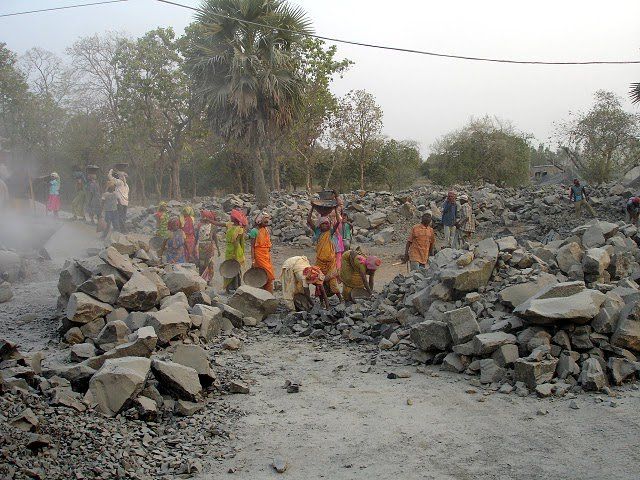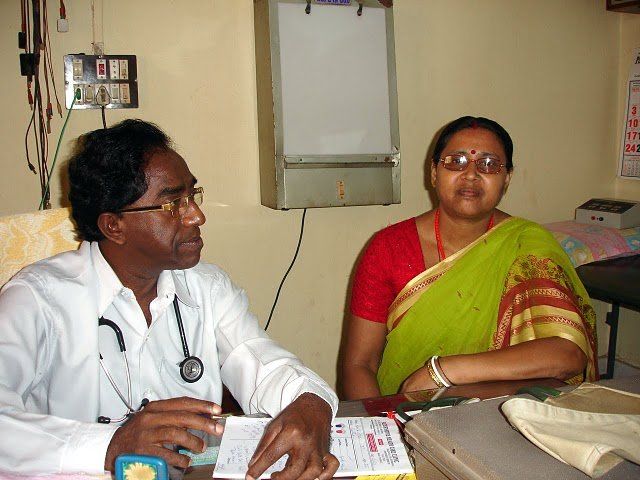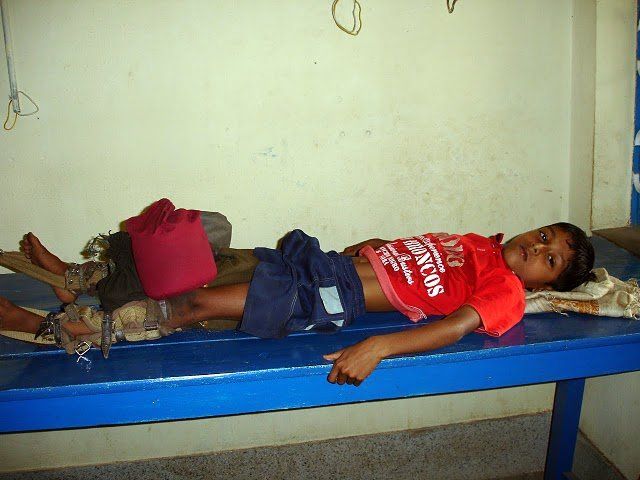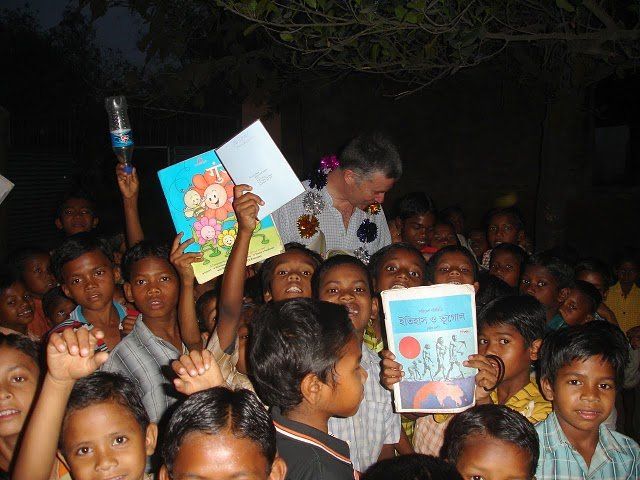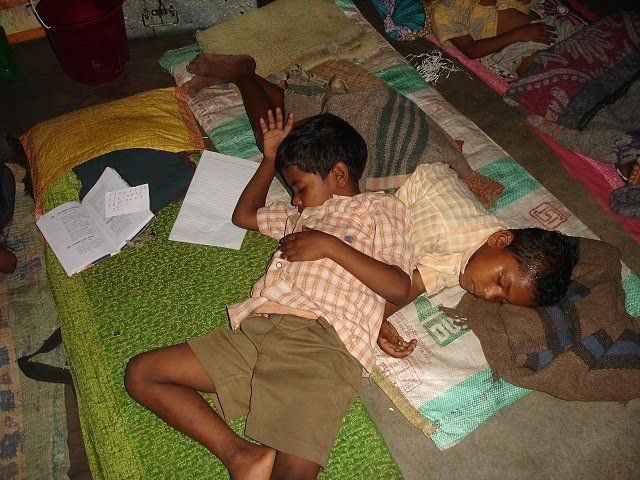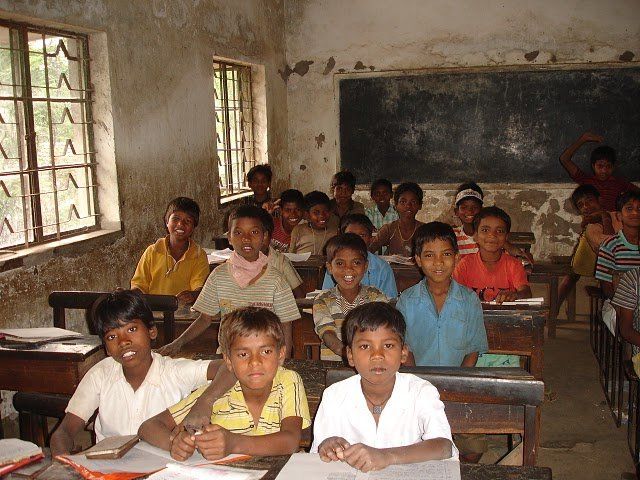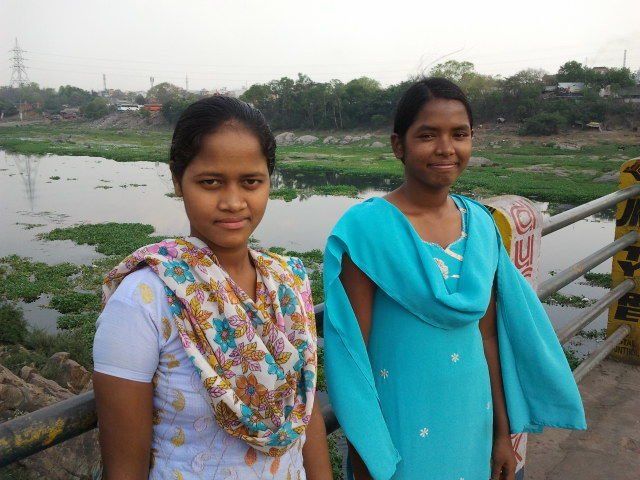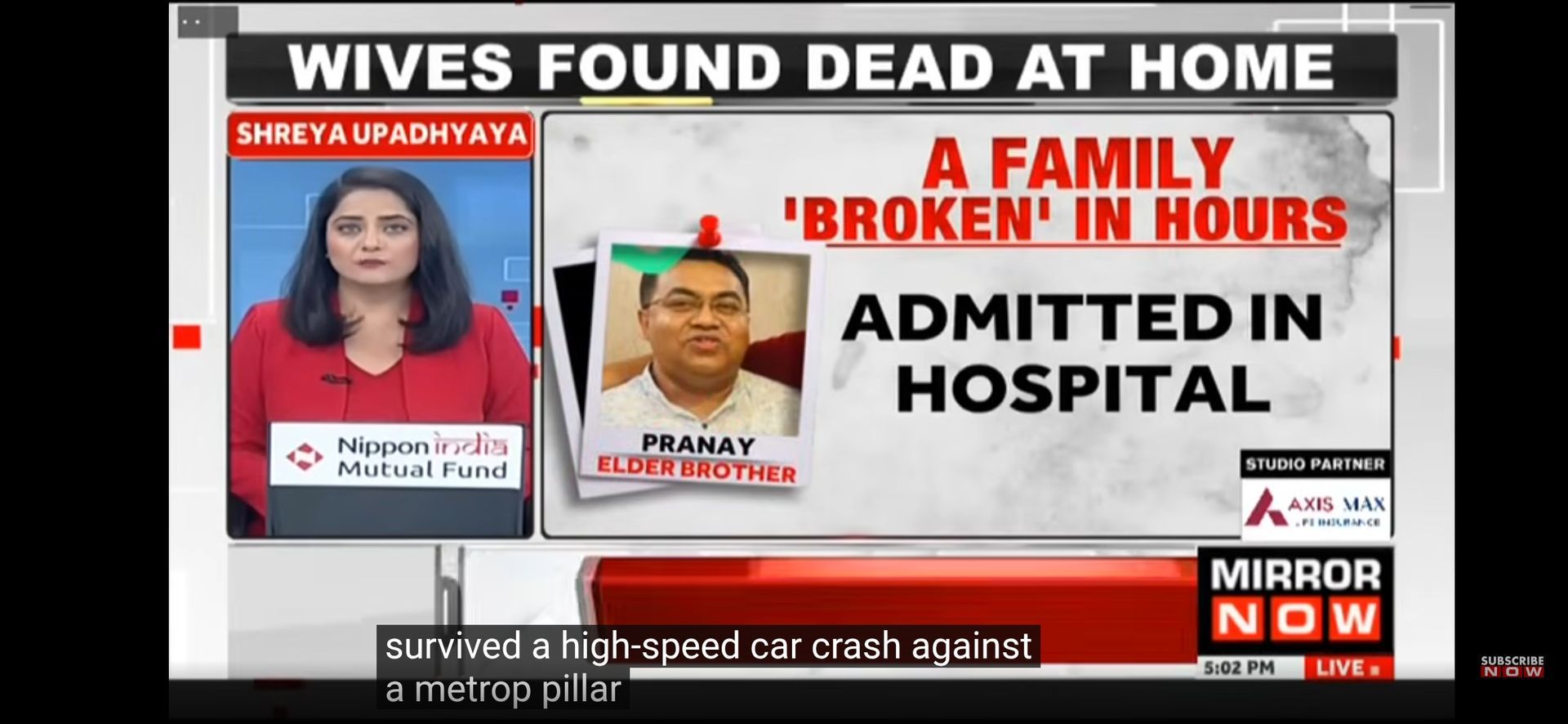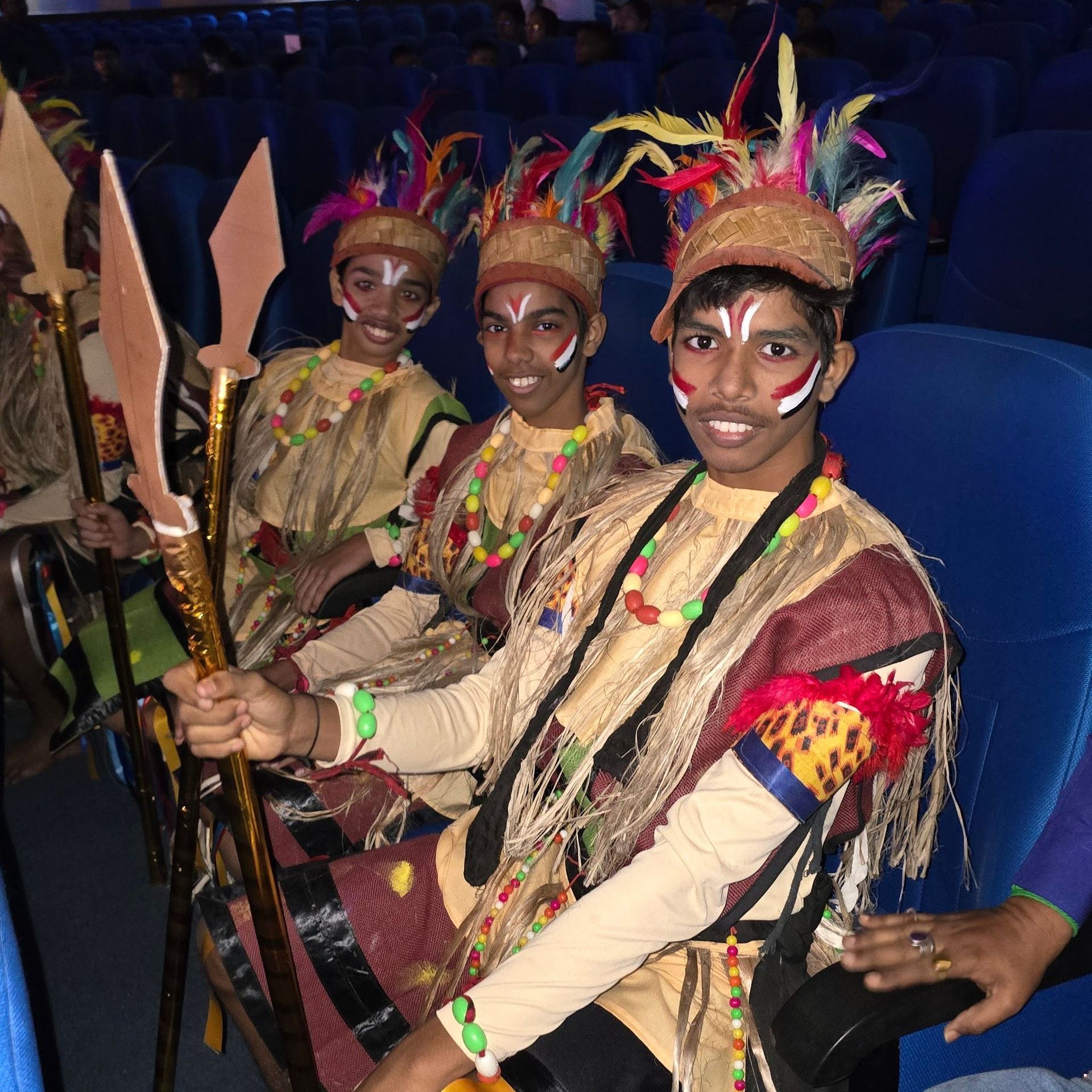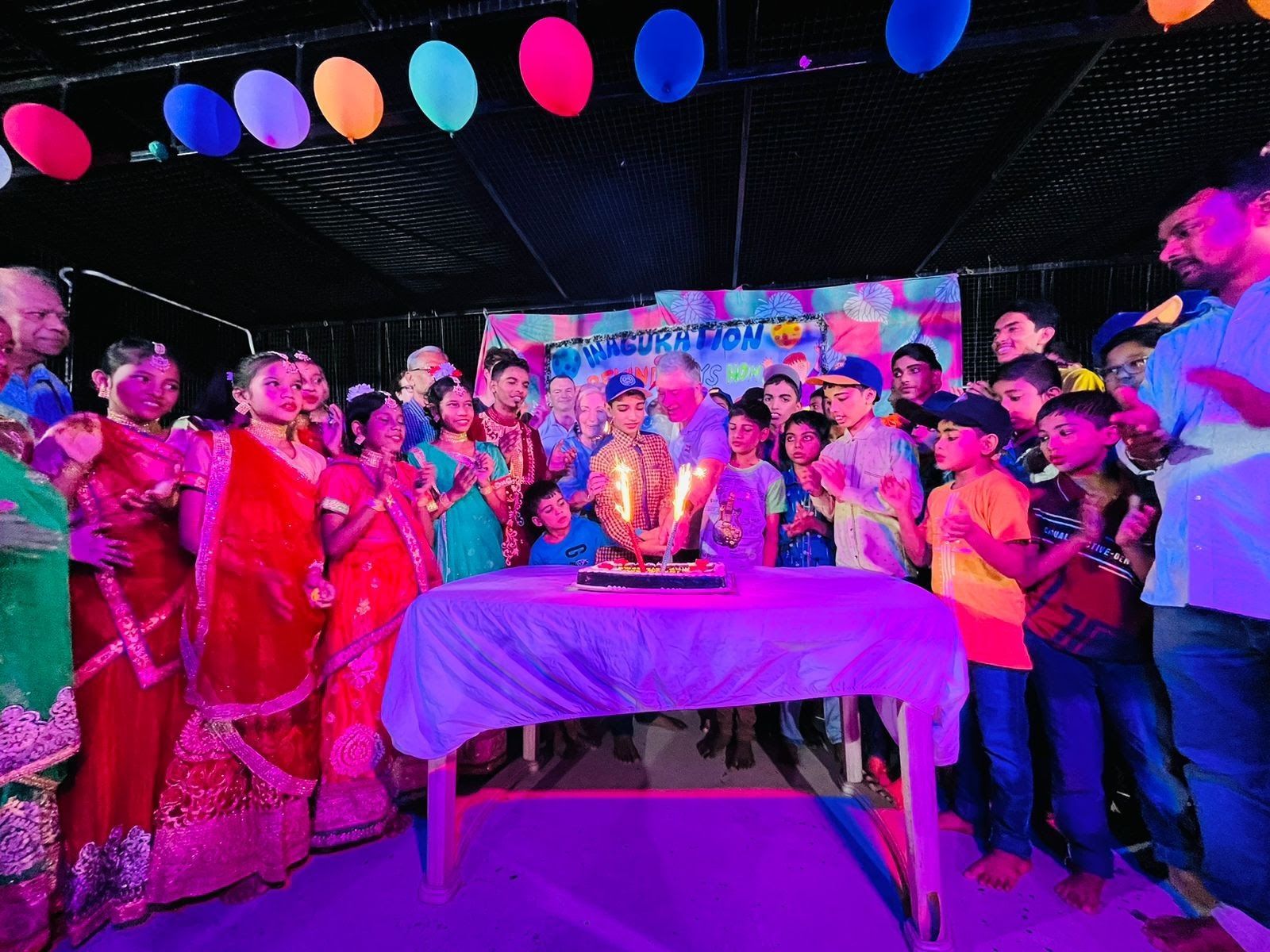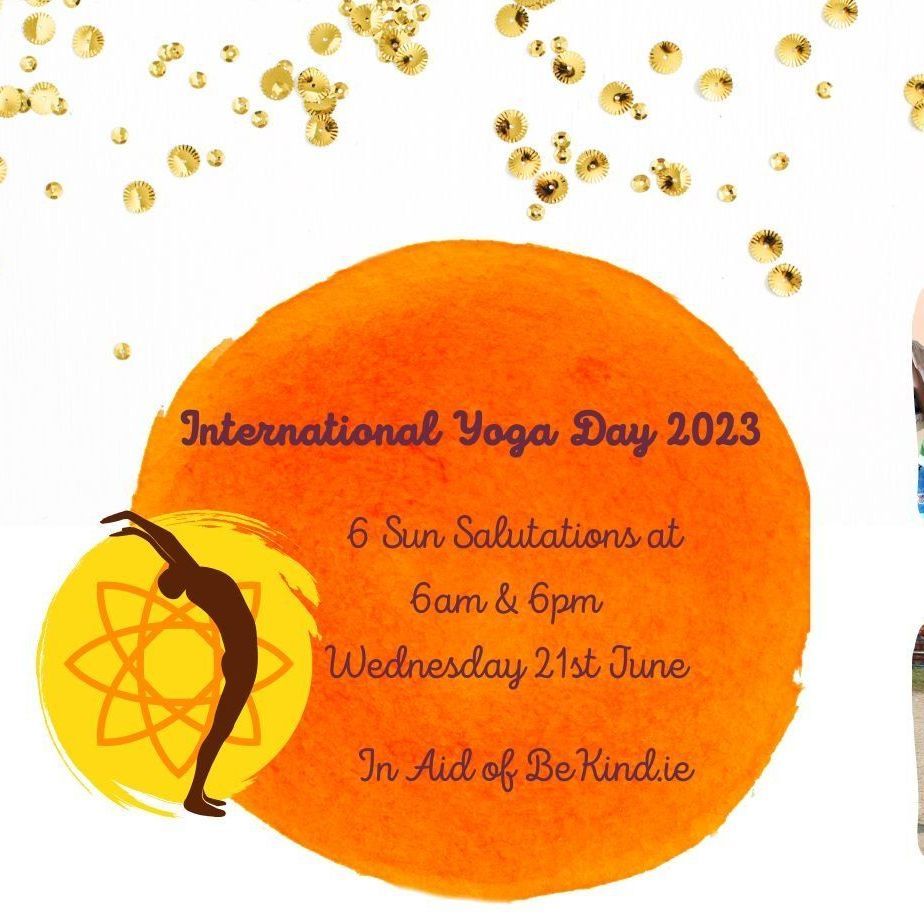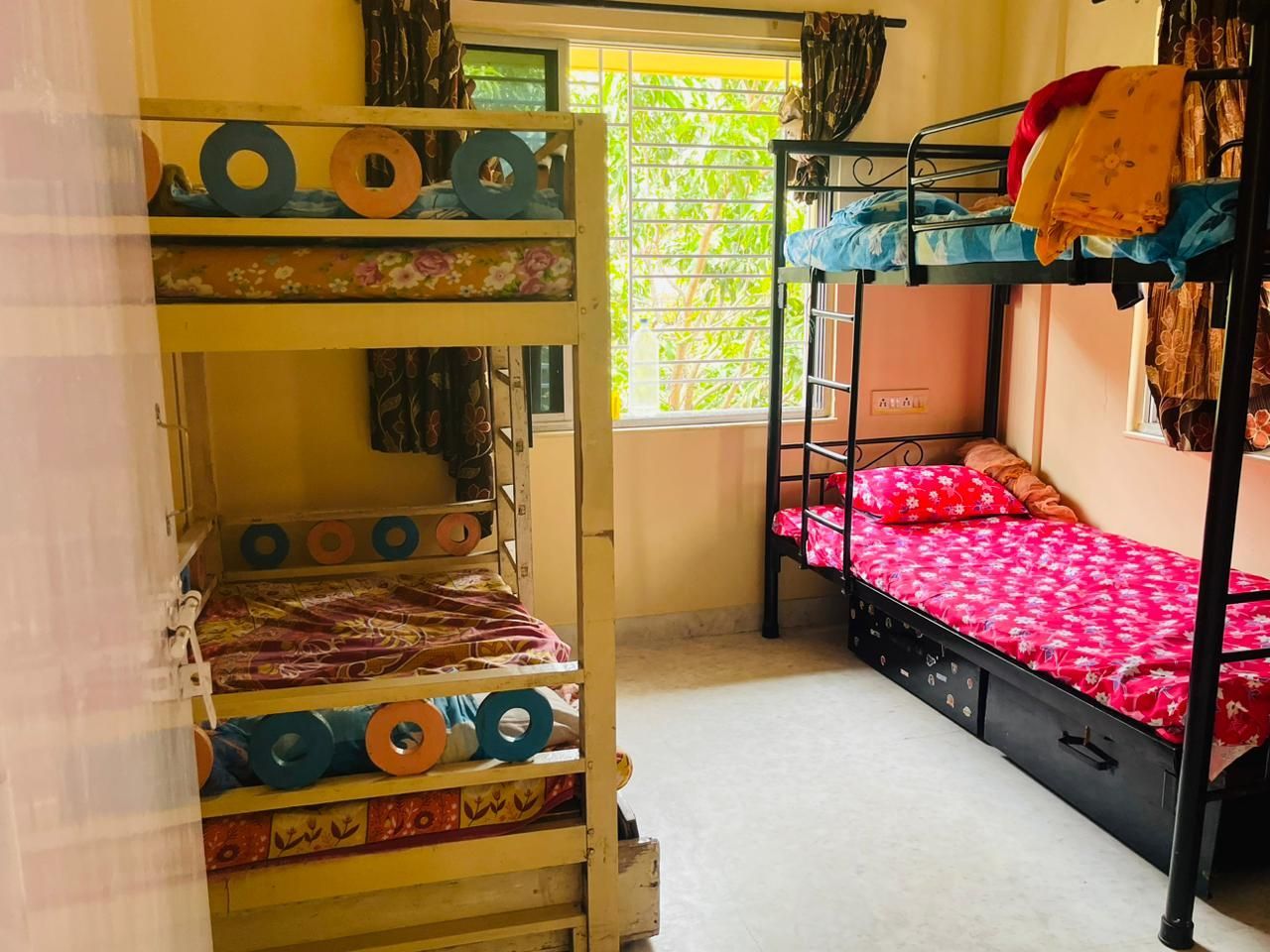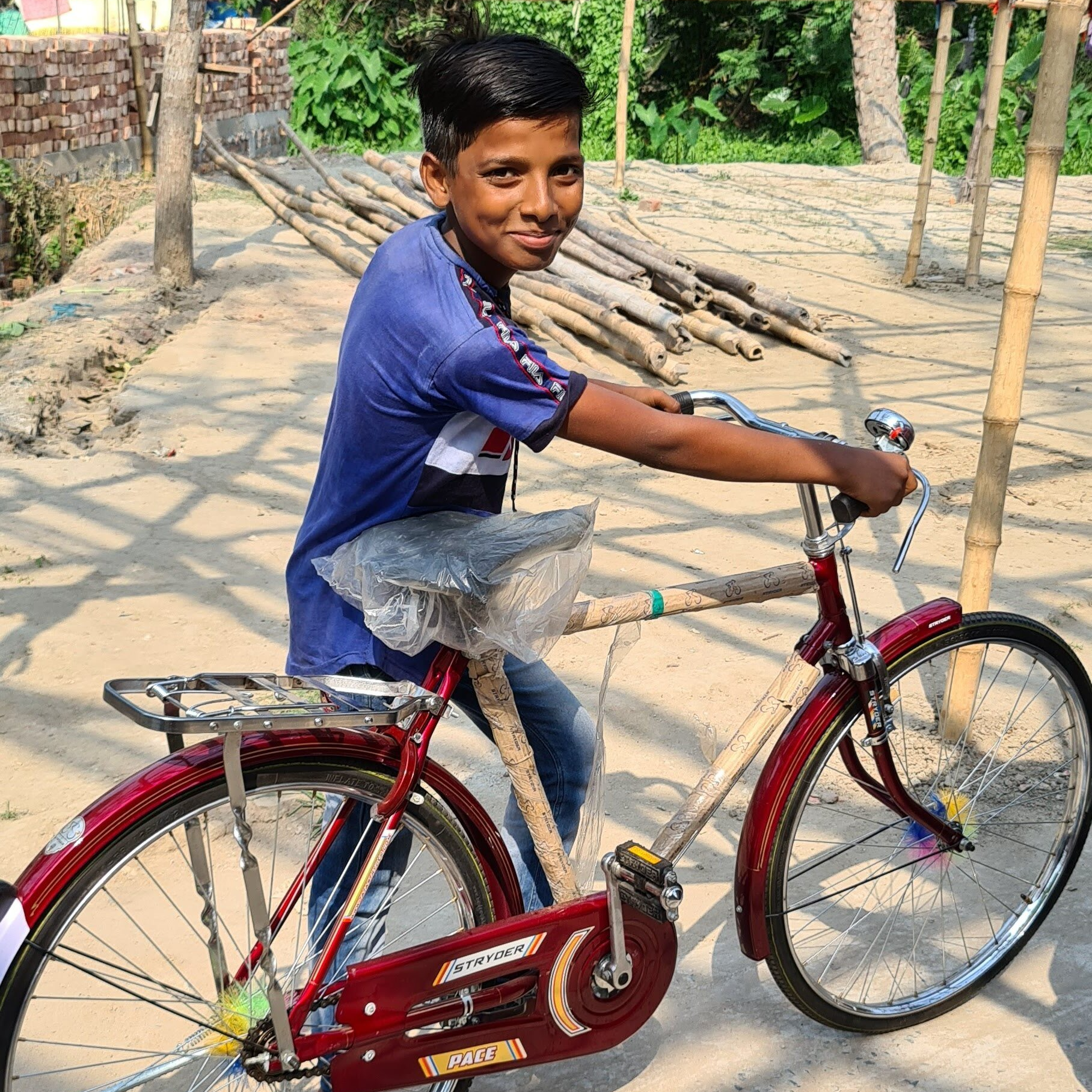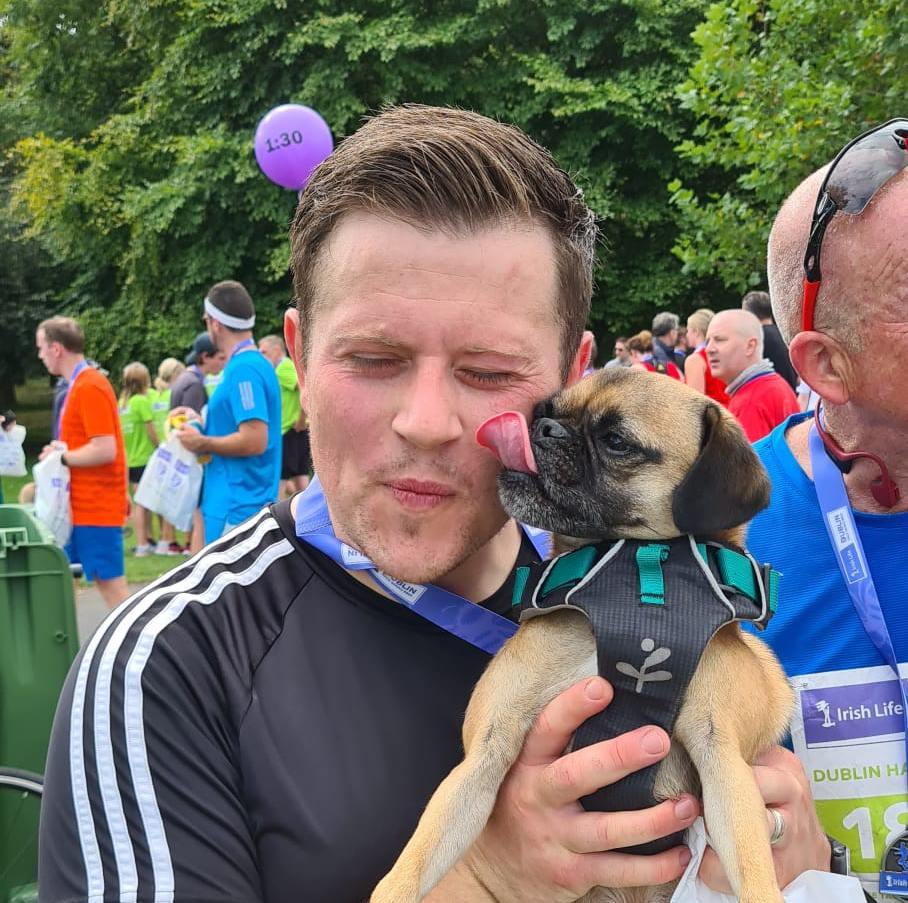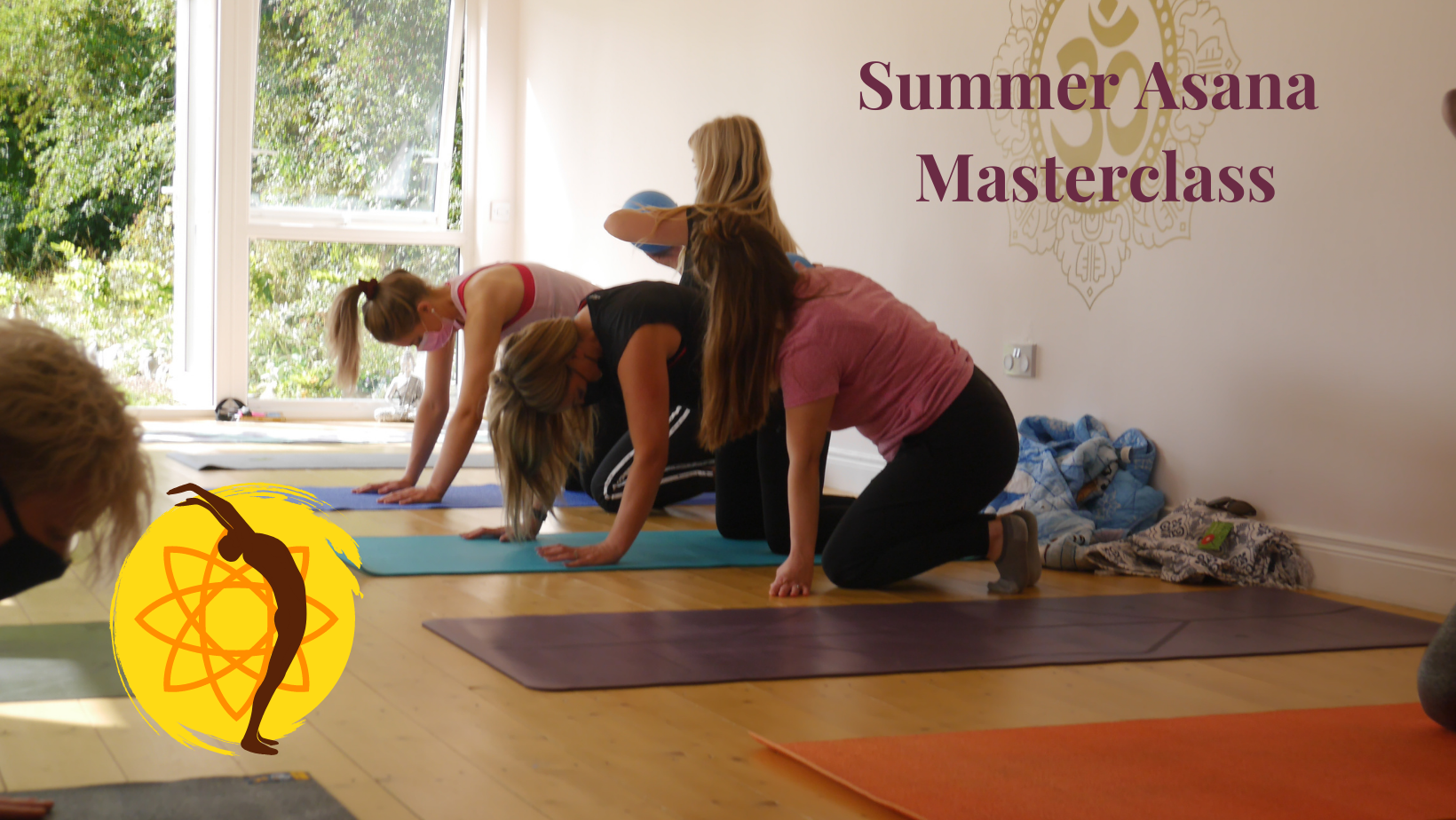Bekind to India 2011 (Part 1)
Brian Flanagan • 3 July 2011
Bekind to India 2011 (Part 1)
This edition covers the experiences of Brian (Founder Director) and a student/teacher group from Castleknock Community College while visiting our projects in India in April 2011.
I took a jar from my bedside locker which contained coins, handy for parking meters, for church collections etc. It needed a little sorting as some sterling and rupee coinage had invaded the "Euro Zone". How stable or otherwise these currencies are in our turbulent financial times is debatable, how useless these coins are unless offered in their respective zones, how there is always a hand out to receive same.
I focused on an Indian 50 Paises coin and thought of two metal-lined wicker baskets, filled with rocks carried aloft on cloth wrapped heads. One Indian Rupee contains 100 Paises. There are approximately 60 Rupees to the Euro. I refer to this for on my first week in India in April 2011, a week I spent in advance of the arrival of the 11 Castleknock Community College students and their 4 teachers, I visited three projects we support in states neighbouring West Bengal, several hours by train from Calcutta.
In the very dusty town of Rampurhat I was met at the train station by Fr. Johnny, a Jesuit friend I have been in contact with for over 3 years. The station was a hive of activity with many people on their way to a local festival; children with brightly coloured, painted faces eyed me with curiosity.
We drove the 20 minute journey to the clinic avoiding some of the biggest potholes I have ever seen, and that's quite a statement for an Irishman! Huge trucks were the "pothole culprits", assisted by the monsoons. The rains had been scarce in the last two years and the constant convoys of trucks, heavily laden with their loads of graded stone: gravel, coarse and fine, pounded the scorched and battered roads causing dust to rise and fall on every surface. It filled the air and entered the lungs, especially the lungs of the basket bearers, the many who toil in the multiple stone quarries for which this area is renowned.
A strong and fit labourer can earn up to 200 Rupees per day if he or she can carry enough of those wicker baskets, they are paid 25 Paises per basket. Yes if you are doing your maths right that's 1 Rupee for every 4 baskets, 800 baskets carried to earn 200 Rupees which equals €3.30 per day! And hence the daily use for the little Maruti-Suzuki ambulance which carries injured and worn out labourers to the clinic, a very special clinic for treatment.
I was initially sceptical about the clinic when I heard about it a couple of years ago for it was classed as an "alternative medical clinic". Seeing is truly believing and meeting Fr. Peter, the man behind the project gave me an insight into a truly wonderful place, where patients come to be treated for many ailments and conditions.
As a young student Peter had studied engineering in university. After feeling the call to join the Jesuits he went on to study medicine and today the combination of his skills are very apparent in his now renowned health clinic in Kaliadanga, Rampurhat on the borders of West Bengal and Jharkand.
Along with Fr. Peter, known as "Doctor Father" and Fr. Johnny the administrator, there are 15 co-workers, two visiting doctors, a physiotherapist and 12 well-trained nurses. I was to witness people with chronic ailments, some of whom had been rejected by more illustrious hospitals in the cities who told them they were "incurable", now given hope and treatment.
Sitting in his office I saw the ever cheerful "Doctor Father" examine patients and could see the psychosomatic approach in action as he believes in a holistic approach. He confidently informs the patient that he will be able to help them. His personal counselling skills and kindness put them at ease and he prescribes the necessary treatment and medication.
I saw children with polio being treated, traction machines and weights used to slowly stretch tendons. I talked to people who had been carried in on stretchers who were now able to walk. I was witness to something wonderful and it filled me with hope and humility to know that monies from Bekind
Ireland were working where they were needed most to make the lives of the poor and oppressed a little better.
A €2,000 donation this year was used to purchase new medical equipment for the centre.
Despite the large volume of patients seen during the day, Peter insisted we go out after his day's work was complete.
We visited two local schools where young children were boarders. Another Don Bosco boys' school run by the Silesians and a girls' school run by MHC Sisters. I was to learn many of the children were there at a nominal monthly fee as their parents were unable to support them. They were mostly local tribal children and as always keen to show off their homework and copybooks to me.
Seeing the children slowly walk around the grounds at sunset saying the rosary was such an unusual sight, nobody misbehaved or stepped out of line and discipline was never an issue.
On the journey back from an evening at a "Daba" (roadside pub) Fr Peter sang the John Denver song "Country Roads" as he deftly navigated his way around the potholes in the little ambulance. I had driven it earlier in the day allowing some of the children from the clinic sit on my lap and steer it around the grounds.
I made a call to Ireland to update my father-in law on how his vehicle was doing and to try and lift his spirits as his health had declined. It was not to be as he had been re-admitted to A&E in hospital on the evening I phoned. One week later, April 20th 2011. Richard Freeman was to pass away, a loss I am still coming to terms with and a void that can never be filled. The loss and the surrealism compounded by the distance and my decision to remain in India with the student/teacher group.
Stopping off at Don Bosco's I was invited inside to see where the children slept. 400+ boys asleep on the floor of a large upstairs dormitory. It is amazing to see so many in such basic conditions without even a bed, but there they were fast asleep like little angels seemingly oblivious to the thin mats on the hard cement floor and the stifling heat and humidity. One little fellow had fallen asleep with his copybook open beside him while practicing his A, B, Cs.
The 7.07 am intercity express brought me back to Calcutta. A quick change and shower in St Mary's in Dumdum, where friends had kindly put me up and I was off by "high speed" auto-rickshaw to the airport to catch a flight to Ranchi.
Formula One in India is gathering many enthusiasts, with Delhi scheduled to host its first Grand Prix in late October this year. My auto-rickshaw driver must have thought he was trying to qualify as a potential racing driver for we sped and weaved our way through the bustling Calcutta streets, dodging every type of moving obstacle: pedal rickshaws, hand carts, busses, trucks, trams, children, pedestrians, sacred cows and dogs missing them by a short whisker. Speeding on the wrong side of the road against oncoming traffic then diving across the central reservation at the very last minute avoiding "deep impact". We got to the airport in half the normal time, my driver's sweating, fat, round face carrying a smile of satisfaction, gloating in the display of his talents. I didn’t know whether to tip him or hit him as I tried to unclench my by now paralysed hands from the bars of the rickshaw.
Deep down it had been actually exhilarating and can only be described as "the ride of my life" but I will never tap my watch again when boarding an auto-rickshaw!
In Ranchi Br. Peter Murmu is head of one of Mother Teresa's homes, where they care for 28 mentally and physically challenged destitute men. They also have a small, one-room school for local very poor children from nearby slums. It was my third year to visit and I have gotten to know several of the children quite well. It was here that one boy mentioned in previous newsletters had spent some time. We had arranged that Kabir be fitted with prosthesis a year previously when my son Shane and I took him to Calcutta. Now Peter told me he was staying in a hostel in the town and was doing well.
We travelled to the outskirts to a place named Kishor Nagar to visit him. I was expecting this "hostel" to be a small place but could not believe my eyes when we entered the extensive grounds of a Jesuit-founded boarding school. I was to learn it was home to eight hundred boys, most of them orphans. They called this place "Boys' town"
The children were so dusty, the classrooms so dusty, everyplace covered in dust just like Rampurhat, for once again the monsoon had failed and it had not really rained in two years.
I went in search of Kabir asking as to where he might be. Boys took me into various buildings and classrooms where children were studying. I was surprised as to how well these unsupervised classes operated with the majority of students working away diligently.
Peter suggested I take a class for English which I gladly did and enjoyed the experience of the boys reading aloud and doing some spelling tests on the blackboard. Conditions were very poor, basic and dusty. Dry earth was in abundance both inside and outside the buildings.
The "obligatory" cricket matches were in full swing on the red earth pitches. It is the Indian national game and nowhere is it more popular than with the boys of Ranchi as India's captain, Dhoni comes from their town.
Many of the children were carrying buckets with water for washing. The tanks in the school had run dry and they had fetched the water from a drying river at the back of the grounds.
The school has over 200 applications each year but can only accommodate 75 additional students. Trades and farming skills for older teenagers are provided with a view to developing and preparing the young men for life outside this place which has been home for them from a young age. Many have known no family other than their school mates and teachers in Kishor Nagar.
In January 2010 the founder Fr. Victor Van Bortel passed away. Hundreds of people from various religions attended the funeral of a Belgian Jesuit missioner, who worked among poor tribal youths in Jharkhand.
I was to meet his successor, Fr. Isaac Tete who told me of the huge sense of loss experienced by the boys and the whole community when the 84 year-old passed away.
Father Bortel's former assistant, who now works in the Ranchi provincial house, said the Jesuits wanted to bury the missioner at the Agricultural Training Centre, Namkum, after funeral services at Ranchi's St. Mary's Cathedral.
However, the residents of the boys' town said they wanted "their father" to be with them and threatened to revolt if his body was not brought there. "Their love won, and we changed our plan. Their "father" will be always with them," he said.
Also described as a "stubborn holy man who became poor to make his poor boys rich."
Father Bortel joined the Society of Jesus in 1946 and came to Ranchi. He was ordained a priest in 1959. After 10 years, he started working among orphans and street children and started a center at Samlong, on the outskirts of Ranchi. He started with 80 boys in a single-room center. Later, he bought a 10-acre plot at Bargawan, 25 kilometre east of Ranchi, to set up the boys' town.He said Father Bortel never discriminated against people on the basis of religion. The majority of students are from Jharkhand, but there are some from other states.
A former student said the Jesuit's death has left the students "real orphans".
He was described as a "messiah of the poor" and the boys' town "a gift of God." Father Bortel, he said, produced several engineers, teachers and some Catholic priests during his 41 years of work in the town.
Coming from the direction of the river I saw a young lad make his way towards me. He was holding some pages in his hand. He was walking with a very slight limp but did not need the crutch which had been his steadying companion since the age of five or six. The smile on his moon shaped face grew wider as he drew closer. He had grown over the last year and looked well. To see him walk up to me unaided and wearing long trousers he looked just like any of the other able-bodied children. We hugged and he produced his report showing he had moved up two classes in the one year. He was so proud of his achievements and I could sense the confidence in the child, who had performed poorly in school previously.
So many children in India have such difficult backgrounds and yet Kabir could be classed a one of the lucky ones. He is getting an education and now, because of a little encouragement, he believes in himself. He is lucky in comparison to his brother, who at 11 years of age sweeps the floors of the trains and begs to survive.
Funds from Bekind
Ireland continue to support Kabir and several other children via Br. Peter and the Missionaries of Charity in Ranchi. Next day I traveled on to Tata (Jamshedpur) spending time in Amar Jyoti and meeting a group of novice tribal girls who are studying to become teachers and some may also become sisters. Sr. Elsita and her team are giving these students a wonderful education and in turn they will become educators. Funds to support them have been distributed.
I also had an opportunity to visit an old friend I first met in Calcutta in 2005. He is another Jesuit and was spiritual adviser to Mother Teresa for over 20 years. He has seen and experienced so much over 60 years in India and is really living history in person. I asked his for his advice for the students who were due from Ireland. He said they should not be bothered with the tourist side of their visit but to get to know the people, for it is in them that the true heart of India exists.
